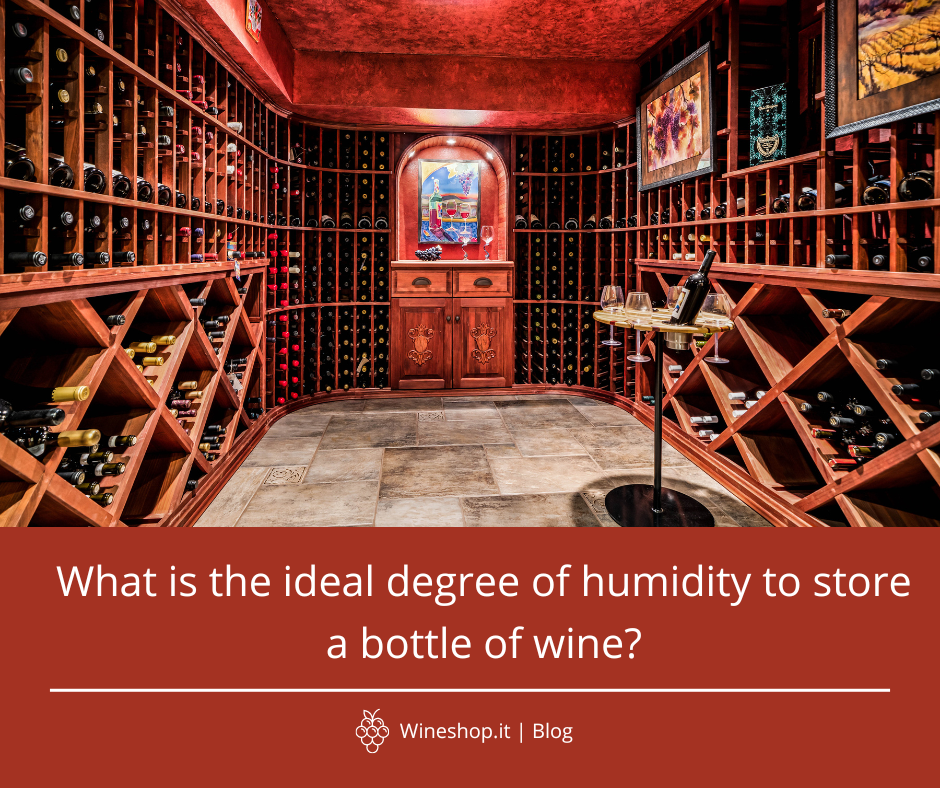What is the ideal degree of humidity to store a bottle of wine?
Position, temperature and humidity: wine experts focus on these factors when they talk about storing bottles in the cellar.
In this article, we want to tell you about one of these factors: humidity. Why is a certain degree of humidity important for storing wine bottles? What is the best degree of humidity for storing wine?
Read the article to find out the answers to these questions.
Why is humidity an important parameter for storing wine bottles?
Before telling you what is the degree of humidity that should be in a cellar for storing wine, let's try to understand why the humidity factor is so important and what effects it has on the bottles.
Let's say that incorrect humidity levels have negative effects, especially on those bottles with a cork closure and, consequently, on the nectar contained in them. Quite simply, if the cork is damaged, the organoleptic characteristics of the wine are also altered.
Specifically, two properties of corks are involved:
- elasticity, the ability to deform and adapt to the neck of the bottle for a perfect closure;
- tightness (not total), non-permeability to gases. As the most experts know, a minimal amount of air and oxygen still manages to filter from the cork with beneficial effects for the evolution of wine. Let's clarify this last point by saying that a micro-oxygenation allows the development of the organoleptic properties of the nectar, while an excessive and uncontrolled oxygenation deteriorates them.
This is important to understand why controlling humidity and keeping it within certain levels is essential for storing wine bottles. Ideal humidity levels preserve the elasticity and tightness of the cork; while a non-ideal degree of humidity compromises them.
A low degree of humidity creates a "dry" environment which makes the cork less elastic and less airtight, allowing too much air to pass through. The result is a macro-oxygenation that ruins the organoleptic properties of the wine.
A high degree of humidity creates a favorable environment for the proliferation of molds which could damage the cork. Add to this that excessive humidity would also ruin the label of the bottle!
Correct humidity levels, on the other hand, preserve the elasticity and tightness of the cork and, as a direct consequence, also of the nectar contained in the bottles.
Until now, we just wanted to explain why keeping humidity under control is so important.
In the next section, we identify the humidity levels you should respect.
What is the best degree of humidity for storing wine bottles?
After years and years of research and scientific studies, an ideal humidity range has been identified. This ideal range is between 60% and 70% humidity! Lower and higher levels of humidity could lead to the negative effects we reported earlier.
This "range" has not too rigid boundaries. Some experts have hypothesized the possibility of expanding these values. There are those who argue that you can go up to 75% and you can go down to 50%. Our advice is to keep the humidity of your cellar between 60% and 70%!
If you liked our article or it was useful to you and if you want to continue to have news, updates and curiosities about the world of wine, subscribe to the Wineshop.it wine newsletter. Lots of content and offers await you!









